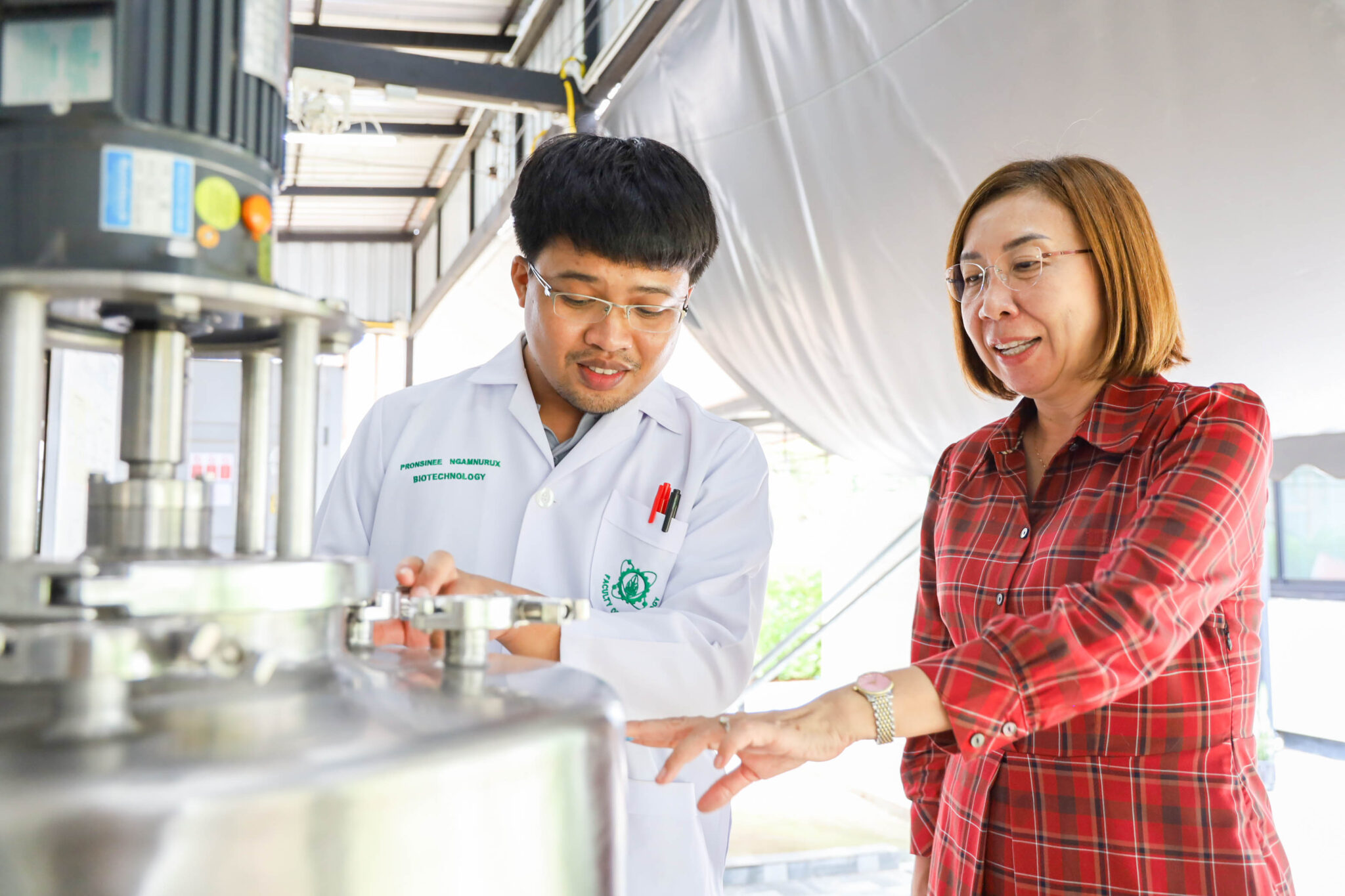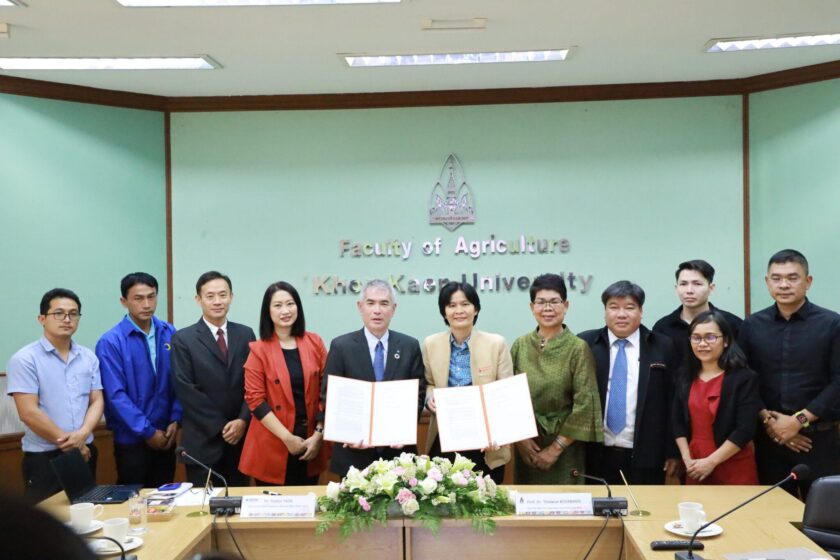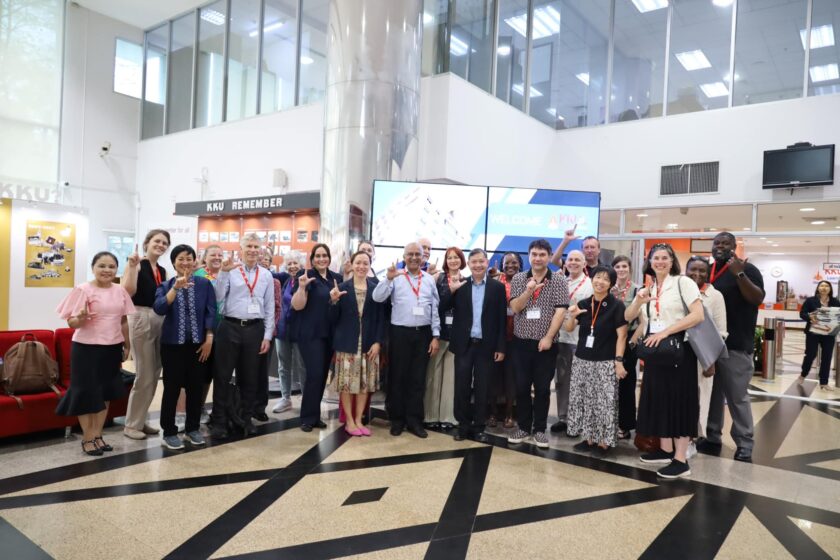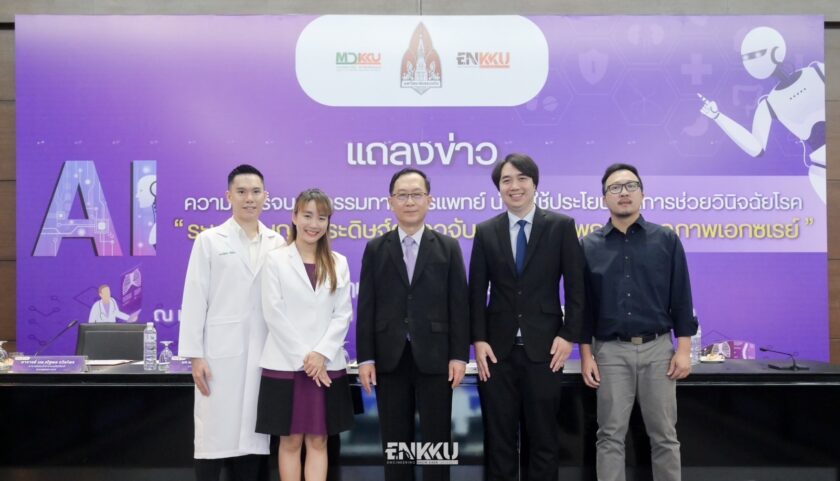Solution of pollution from industrial factories and management of waste or biomass is the challenge for industrial factories that do not only need to dispose of wastes correctly, but also to optimally utilize the wastes by environmental friendly methods.
Even though this is a big issue of an industrial factory, Prof. Alissara Ruangsaeng, Ph.D., a lecturer of the Department of Biotechnology, Faculty of Technology, Khon Kaen University and her team have the answer and the approach to completely solve this problem.

Professor Alissara explained that the research entitled, “Digestion of Wastewater from Biogas Production and Filter Residues for Two-Stage Hydrogen and Methane Production” is the research query from B.B.G.I Bioethanol (Public Company) Nam Phong Branch. The company wants to use “Filter Cake”, which is the residue remained from filtering and separating sugar cane juice in the sugar manufacturing process, to digest with wastewater from the biogas production process.
“Khon Kaen University opens a space for PhD students to perform research with the industry and solve industrial problems by incorporating the knowledge from Biohythane Prototype Factory of Khon Kaen University. This research is the PhD thesis of Mr. Worapong Wong-amat, a student under the Researcher and Research Development for Industry Project, Department of Biotechnology, Faculty of Technology.”

Wastewater from biogas production process is the molasses from ethanol production used for producing biogas. It still has high contents of dirtiness and organic matters and cannot thus be discharged into the environment. The wastewater should be recycled in energy production by digesting with filter cakes by the anaerobic two-stage digestive approach, the result of which is hydrogen and methane.
The process yields bioenergy in the form of hydrogen and methane gases, with hydrogen as the outcome of the first step and methane as the outcome of the second step.
“A lot of people are interested in this research, so it can be used for utilization of industrial wastes, especially from sugar and ethanol production processes. The technology is to be transferred to the company that raised the research query, for extension at the industrial level. At the same time, the research team of Khon Kaen University has already published the research work in an international journal and has applied for the petty patent.”

Professor Alissara added that the two-stage hydrogen and methane production by digesting wastewater from biogas process and filter cakes is the research that answers the conceptual issues of BCG (Bio, Circular, and Green Economy Model), for it makes use of agricultural industrial wastes as raw materials to produce clean energy, i.e., hydrogen and methane.
Panit Khatnak







